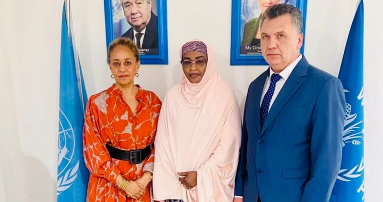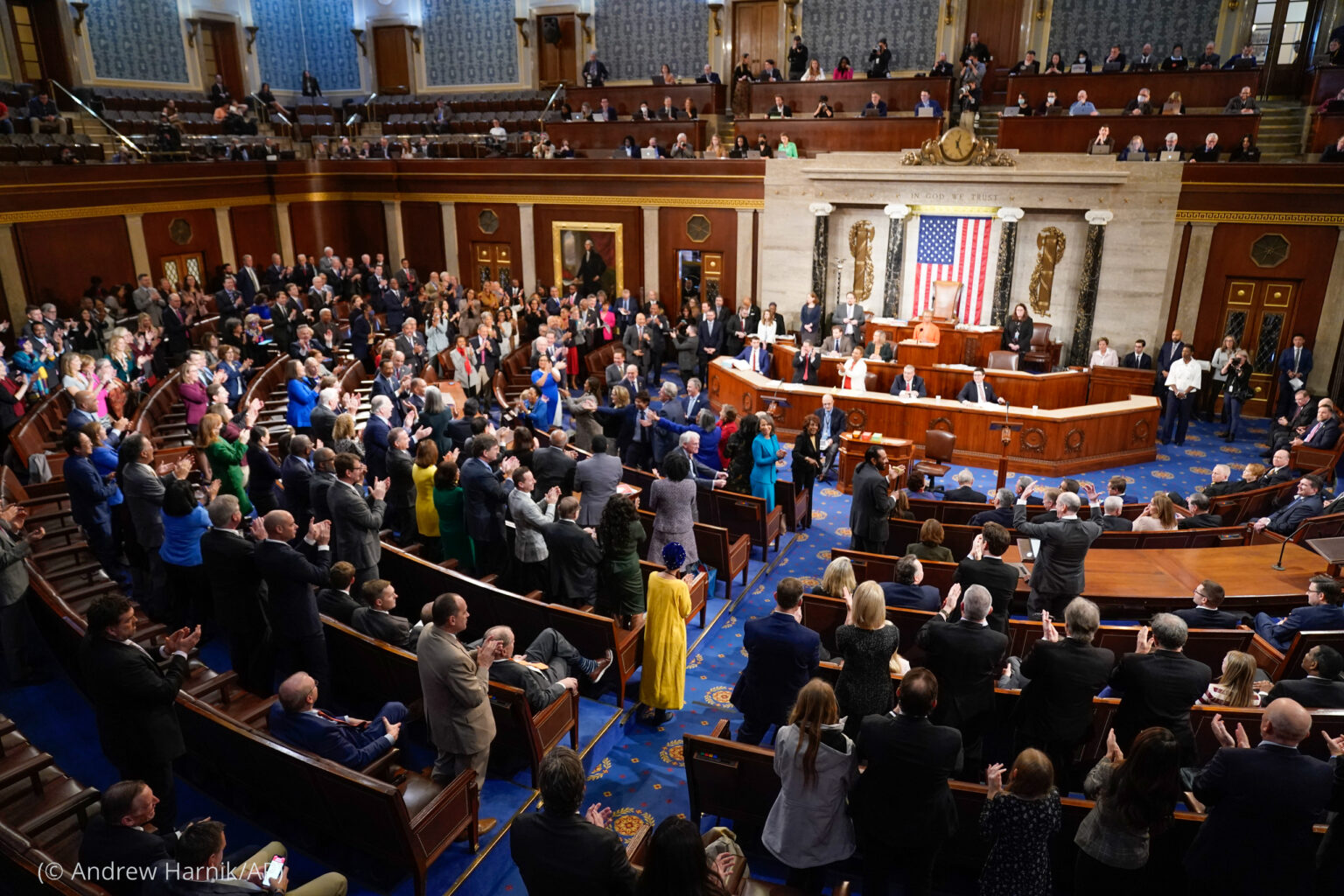About 1.3 million Nigerians impacted by the rising cost of food in the northeast will benefit from the 25,000 metric tonnes of wheat donated by the Ukrainian government to Nigeria, the World Food Programme (WFP) has disclosed.
The international organisation disclosed this while receiving the donation from the Ukrainian government, which was represented by the country’s ambassador to Nigeria, Mr. Kholostenko Ivan, as part of their “Grain from Ukraine” initiative.
According to a statement by WFP, the shipment was made possible through a collaborative effort from Canada, Denmark, Finland, France, Luxembourg, Norway, the Republic of Korea, Sweden, and the United Kingdom, which helped cover the costs of transporting the wheat from Ukraine to Nigeria and its distribution to the families who urgently need it.
WFP Representative and Country Director in Nigeria, Mr. David Stevenson, said: “The World Food Programme (WFP) today welcomes a generous donation of 25,000 metric tonnes of wheat from the Government of Ukraine that will help provide emergency food assistance to 1.3 million crisis-affected people in northeast Nigeria.
“We extend our heartfelt thanks to the Government of Ukraine, partners, and donors for their unwavering support through the Ukraine Initiative.
“This collaborative effort plays a crucial role in alleviating suffering and maintaining human dignity in areas facing conflict and food price increases.”.
He added that, as part of WFP’s ongoing humanitarian operations, the wheat donation will be combined with cash and other commodities to meet the basic food and nutrition needs of crisis-affected women, men, and children for a two-month period.
Furthermore, Stevenson lamented the recent skyrocketing increase in food prices across the country, especially in Maiduguri, where prices of staple foods have increased by over 150%.
He said: “In Maiduguri, for example, the wholesale prices of red beans have increased by 210 percent compared to the same period last year, February 2023. Similarly, prices of maize and sorghum increased by 176 percent and 188 percent, respectively.
“WFP is committed to working with the government and partners to build more resilient, inclusive, and effective food systems, taking advantage of its current footprint in the country.
“Through its “Out of Conflict into Solutions” food systems approach, WFP seeks to prioritize emergency food assistance to the most vulnerable groups while simultaneously supporting self-reliance by rebuilding assets to improve long-term food security and resilience, including adaptation to climate change, providing timely access to nutritious food, and promoting innovative financing to support WFP operations.
“In 2023, WFP invested US$200 million in the agricultural economy through locally purchased food and cash transfers to crisis-affected families for food redemption in local markets.
“WFP has the tools and willingness to support the government in restoring and unlocking the agricultural potential of northeast Nigeria, making it again the breadbasket of the country. But we cannot achieve this alone.
“Collective action is needed to bring peace and stability, ensure stable markets, encourage financial investments, and generate employment through enhanced collaboration with Nigerian private sector partners, suppliers, transporters, service providers, and retailers.”
He, however, said that to ensure continued food and nutrition assistance to crisis-affected people in northeast and northwest Nigeria, WFP urgently requires $154 million for the next six months.
























Leave a comment